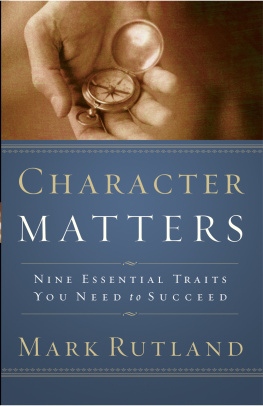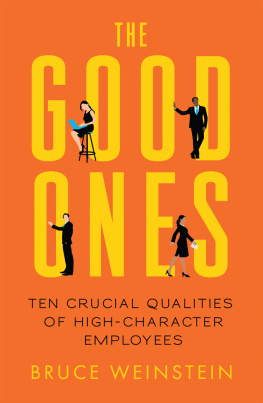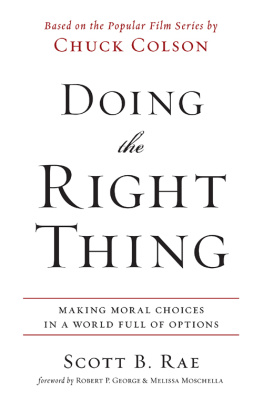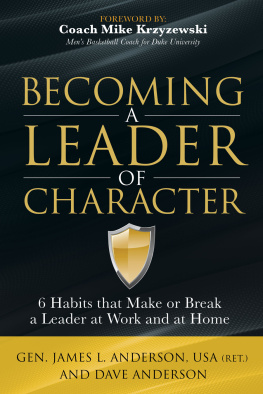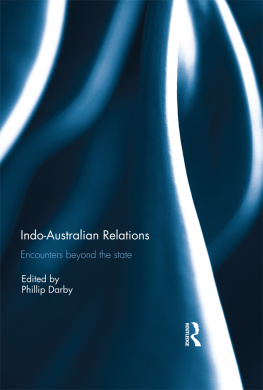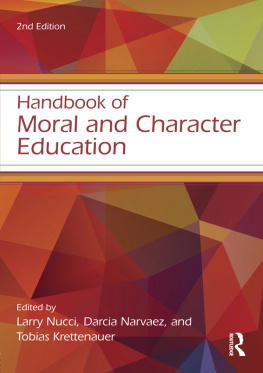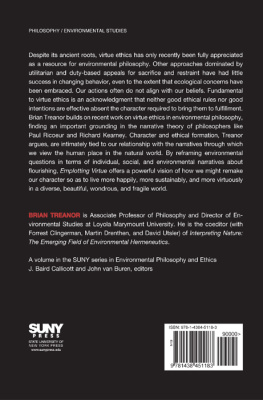Virtuous Minds
Intellectual Character Development
For Students, Educators & Parents
Philip E. Dow

www.IVPress.com/ books
InterVarsity Press
P.O. Box 1400 Downers Grove, IL 60515-1426
World Wide Web: www.ivpress.com
E-mail: email@ivpress.com
2013 by Philip E. Dow
All rights reserved. No part of this book may be reproduced in any form without written permission from InterVarsity Press.
InterVarsity Press is the book-publishing division of InterVarsity Christian Fellowship/USA, a movement of students and faculty active on campus at hundreds of universities, colleges and schools of nursing in the United States of America, and a member movement of the International Fellowship of Evangelical Students. For information about local and regional activities, write Public Relations Dept. InterVarsity Christian Fellowship/USA, 6400 Schroeder Rd., P.O. Box 7895, Madison, WI 53707-7895, or visit the IVCF website at www.intervarsity.org.
All Scripture quotations, unless otherwise indicated, are taken from THE HOLY BIBLE, NEW INTERNATIONAL VERSION, NIV Copyright 1973, 1978, 1984, 2011 by Biblica, Inc. Used by permission. All rights reserved worldwide.
While all stories in this book are true, some names and identifying information in this book have been changed to protect the privacy of the individuals involved.
Cover Design: Cindy Kiple
Images: Benjamin Howell/iStockphoto
ISBN 978-0-8308-8433-9 (digital)
ISBN 978-0-8308-2714-5 (print)
Contents
The Graduate Profile for Rosslyn Academy, 2006-2007 and 2007-2008 School Years
Intellectual Character Elementary Curriculum: Suggested Devotional Series for Grades One Through ThreeRosslyn Academy
Assessing Intellectual Character
The Berean Bursary
The Bear Creek School National Honor Society Intellectual Character Evaluation Form
The Bear Creek School Senior Project
Philosophy (the Love of Wisdom and Truth) and Logic (the Tools Needed to Find the Truth): Rosslyn Academy Course Outline
Introduction for the Intellectual Virtues Academy, Long Beach, California: Charter School Petition
To the students, families, teachers, staff and administrators of
Rosslyn Academy (Nairobi, Kenya)
and
The Bear Creek School (Redmond, Washington)
About the Author
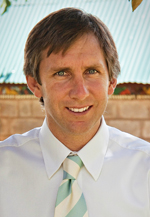
Philip E. Dow (Ph.D., Cambridge University) is superintendent of Rosslyn Academy in Nairobi, Kenya. Dow has over a decade of classroom experience, teaching advanced courses in social studies and history at the high school level. He is the author of "School in the Clouds": The Rift Valley Academy Story.
Subject Index
Page numbers refer to print edition: ISBN 978-0-8308-2714-5.
Antoinette, Marie, 73
Aquinas, Thomas, 96
Baehr, Jason, 131
The Bear Creek School, 137, 139
Blair, Jayson, 62
Brand, Paul Wilson, 55-57, 104-5
Brooks, Philip, 143
CBS News, story about George W. Bush in the National Guard, 62
Chesterton, G. K., 48, 70
Covey, Stephen, 126
Chariots of Fire, 77
Davies, Robertson, 81
decline of Western civilization, causes of
Bennett, William, 40
Bloom, Allan, 40, 46
Postman, Neil, 40
Edison, Thomas, 41-42
Goethe, Johann Wolfgang von, 142
Green, Keith, 141
Hammarskjld, Dag, 61, 67
Harris, Bob, 64-65
Havel, Vclav, 106-8
Hutton, E. F., 83
intellectual bias, 21, 133-34
intellectual carefulness, 12-13, 15, 21, 23-24, 32-38, 88-92, 102, 143
intellectual carelessness, 12, 21
intellectual character
benefits of, 81-109
and cheating, 21, 64
definition of, 22-24
and education, 15-17, 125-39
and Greek philosophers, 12, 34, 51
and infidelity, 21
and the media, 36, 62, 133-34
and medieval theology, 12
and worship, 94
intellectual courage, 12-13, 16, 19, 21, 23-24, 27-31, 89, 106-7, 143
intellectual cowardice, 12, 21
intellectual curiosity, 16, 24, 55-60, 90, 92, 105, 143
intellectual dishonesty, 12
intellectual fair-mindedness, 12, 15, 24, 46-54, 89, 102, 143
intellectual hastiness, 36-37
intellectual honesty, 15, 21, 61-75
intellectual humility, 15, 24, 70-75, 89, 102, 143
intellectual laziness, 12
intellectual open-mindedness, 12, 15
intellectual tenacity, 12, 23-24, 39-45, 90, 92, 105, 129, 143
James, William, 34, 123-24
Jesus, 14, 15, 24, 77, 93, 96, 100, 108, 141-42
Johnson, Samuel, 32
Kepler, Johannes, 19-21, 51-52
King, Martin Luther, Jr., 125
Kstenberger, Andreas, 98
Lewis, C. S., 28, 39, 49, 70, 74, 78, 85, 96, 113, 123
Liddell, Eric, 78
Lincoln, Abraham, 72-73
Luther, Martin, 19, 21, 29, 30
Mariner I disaster, 32-35
Masaccios Holy Trinity , 82
McCullough, David, 35-36
Merton, Robert, 104
metacognition, 134
Milosz, Czeslaw, 71
Mirandola, Giovanni Pico della, 46, 48-51
Moreland, J. P., 103
Moses, 129
Muntzer, Thomas, 48
Musyimi, Mutava, 106, 108
Newton, Sir Isaac, 20, 56-57, 82
Paine, Thomas, 45
Paul the apostle, 13-14, 24, 55, 95-96, 98, 116
Peter the apostle, 97-98
Piltdown Man, 67-68
Proverbs, 13, 24, 113, 114, 128
Psalms, 14, 94, 95
relativism, 46-49
Roosevelt, Theodore, 65
Rosslyn Academy, 118, 127-30, 136-37, 139
Sapir-Whorf Hypothesis, 131
Solzhenitsyn, Alexander, 36, 63
Suk, Hwang Woo, 63
Tolkien, J. R. R., 75
virtue epistemology, 16
Weber, Max, 104
Whitehead, Alfred, 52
Wilberforce, William, 20-21
Willard, Dallas, 56, 68, 117, 120
Zidane, Zinedine, 87-90
Conclusion
Thinking Sheepishly?
On a magically white Christmas in 1981, I was given my first Walkman and a cassette tape The Keith Green Collection. Of the many powerful songs on that tape, the one that stood out to me as an eleven-year-old boy was The Sheep and the Goats. In this song, Green recounts the New Testament parable of the final judgment in which those who will spend eternity with God (the sheep) are separated from those who will be eternally apart from God (the goats). Keith Greens closing words still ring in my ears, The only difference between the sheep and It was a musical prophets powerful call for Christians to begin living out the faith they claimed to have. I was inspired then, and I am inspired now. But today I am moved for a slightly different reason.
I have read and reread that passage in Matthew many times since that day and have become convinced that while Keith Green was technically accurate, he missed the central point Jesus was making. My scholarly friends tell me that the point of many parables is wrapped up in a surprise, and the surprise of this story is not who is rewarded and who is punished but how they both respond to the judgment. The sheep and the goats are both genuinely mystified. When God recounts the things they did that earned them their eternal reward, the confused sheep ask, When did we see you hungry and feed you, or thirsty and give you something to drink? (Matthew 25:37). The response of the goats is no different, But when did we see you... a stranger or needing clothes or sick or in prison, and did not help you? (Matthew 25:44). I always found their confusion curious until I figured out that their confusion was the point. It was the surprise.



